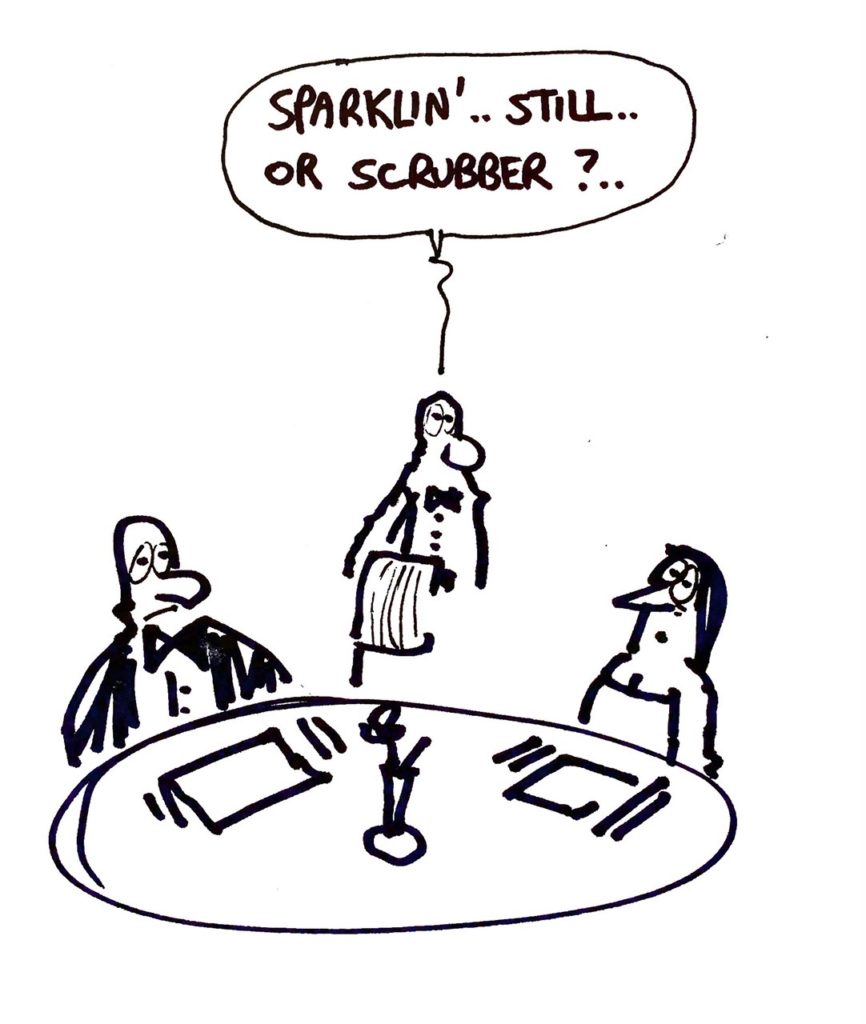Scrubber proponents hit back at ICCT’s washwater claims

Scrubber tech advocates Clean Shipping Alliance (CSA) fired back on Friday responding to the controversial washwater discharge report issued Thursday by the Washington DC-based International Council on Clean Transportation (ICCT), claiming the 28-page study was riddled with inaccuracies.
“The CSA welcomes all scientific inquiries on scrubbers that are objective & well-researched. However, in the case of ICCT’s report there appears to be too many errors – including very high assumptions used in their calculations – to justify the policy recommendations they have suggested,” the pro-scrubber lobbying group said.
The CSA has repeatedly dismissed the toxic wastewater claims made by the ICCT and other organisations.
The ICCT study found that approximately 3,600 ships with scrubbers will emit at least 10bn tonnes of washwater each year for the next several years, 80% of which is discharged within 200 nautical miles of shore. Putting the 10bn figure in context, the global shipping sector carries about 11bn tonnes of cargo per year. Actual discharges may be higher, as the ICCT said it used conservative estimates for washwater flow rates and the scrubber equipped fleet now stands at more than 4,300 ships.
In its first reaction to the report, CSA said: “Looking first at water quality, the studies quoted in the report used very small & outdated sample sets, even the 2020 study has samples from only two ships in 2014.”
A more credible analysis, CSA suggested, would use current and extensive data sets that take advantage of many operating hours that the industry has accumulated. For this, CSA suggested a CE Delft study from 2019 which examined hundreds of washwater samples and found that they compared favourably with European Union and World Health Organization water quality standards.


MRDA.
Thank you!
I would suggest the CSA calmly respond in a scientific way (which is not via a media release) to any questions or concerns they have about research done my other parties. Hastily sending out a media is not the way scientists typically engage in debate. We don’t all have to agree, but we can keep things civil.
I for example was not pleased to see this statement in the CSA’s media release posted on their website:
“The ICCT report claims that wash water discharges from open-loop scrubbers are ‘hot, polluted and acidic sludge’, which is wrong,” he continued. “and cannot be made by anyone familiar with these systems. We are concerned that this is intentionally misleading.”
That’s a fairly strong statement and I hope Capt Mike Kaczmarek has supporting research from a range of sources (not just CSA ones) to back that up or else I suggest that statement should be deleted. Implying that researchers are intentionally misleading is not something that should be done lightly.
In any case perhaps the CSA could send the ICCT a list of questions and wait for a response before commenting further? As an example please see my dealing with Japan’s Ministry of Land, Infrastructure, Transport and Tourism (MLIT) in Open-loop scrubbers, science and the Japan report. https://splash247.com/open-loop-scrubbers-science-and-the-japan-report/
Is this a dog-fight staged by Scrubber interests to protect their bone? Does really matter the “accuracy” of the size of the Pollution they create in oceans and coastal waters? And do all those shareholders of IMO loopholes feel rather fools when their “talented resources” advised them to support the cheapest solution of open loop scrubbers to get along with lobbyist-compromises of IMO regulations? And do those same shareholders feel STILL proud of “sustaining the environment” with those dirty sulphur buckets installed inside their funnels?
By the way here’s a tip for the PR team at the Clean Shipping Alliance (CSA) – if you are going to accuse another party of being misleading then you should make sure you are on very solid ground.
For example in the full CSA media release posted on their website this statement is included: “The ICCT report claims that wash water discharges from open-loop scrubbers are ‘hot, polluted and acidic sludge’.
However the expression “hot, polluted and acidic sludge” does not appear anywhere in the ICCT report as far as I can see so did the CSA make this quote up? In fact I can’t find the term “acidic sludge” used in the ICCT report either.
Maybe Spash247 could ask the CSA to comment?
The cartoon is a hoot !